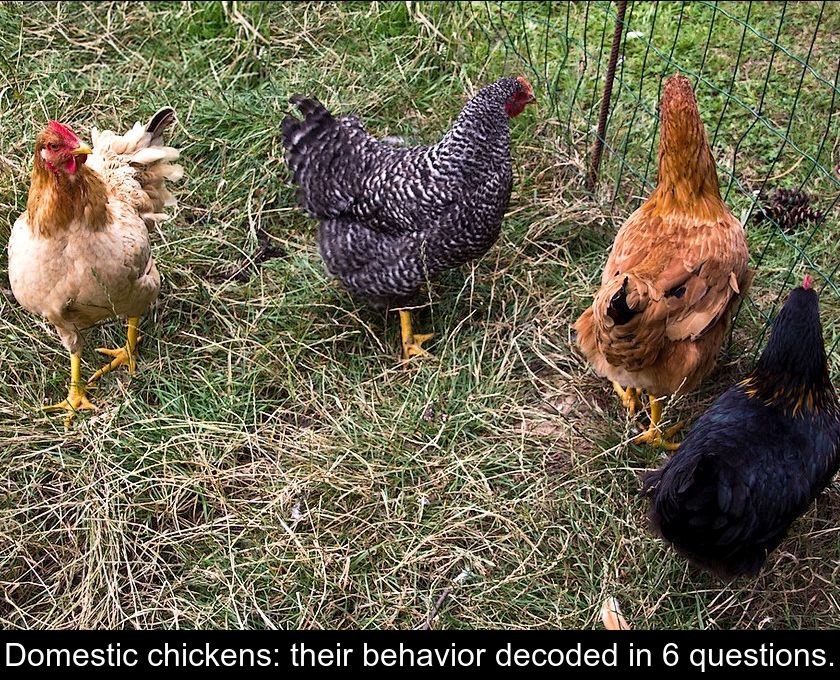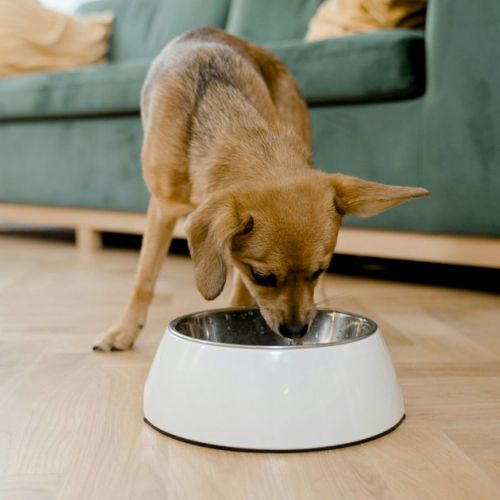Domestic Chickens: Their Behavior Decoded In 6 Questions.
If you have a chicken coop at home, you have probably noticed that chickens don't just peck at grain and lay eggs. They also scratch the ground, roll in the dirt, and squabble with each other. These behaviors may seem strange to you, but they all have an explanation. We will decrypt them in 6 questions.
"Why do chickens roll in the dirt?"
Owners of domestic chickens will quickly notice their habit of scratching the ground relentlessly. The first reason for this behavior is, of course, the search for food. Scratching the ground allows them to find invertebrates that they feed on. But that's not the only explanation.
This gesture also allows them to take dust baths: by rolling in the dirt, chickens get rid of their parasites.
So it is also for hygiene reasons that chickens scratch the ground, sometimes even digging a hole called a "nesting hole"! If you want to help them with their daily grooming, simply provide them with a container filled with sand and wood ashes.
2- Why do chickens swallow stones?
If you have never had a chicken coop before, seeing your chickens eat rocks may surprise or even worry you. But in reality, this is a natural behavior among these birds.
The small rocks that the chickens swallow end up in their gizzard and serve to grind up their food.
To ensure they have everything they need in their coop, you can give them a mixture of small gravel and crushed oyster shells. These shells are a source of calcium (an essential nutrient for strengthening the shells of their eggs).
"Why do some hens eat eggs?"
In case of accidental egg breakage in the chicken coop, it happens that the hens taste it and appreciate this source of protein. Some birds then actively seek out eggs.
To prevent this, it is recommended to:
• place the nesting boxes high up
• collect eggs every morning
• provide protein to your domestic chickens, in the form of mealworms for example.
4- Why do chickens peck each other?
In a chicken coop, social harmony is based on a linear hierarchy. A small peck serves to remind a lower-ranking counterpart of its place in this hierarchy.
Sometimes, lack of space and boredom can make domestic chickens aggressive and push them to mutilate a lower-ranking counterpart.
If this happens, you must:
• isolate the unfortunate one for treatment
• provide the others with a grassy course so that they are less stressed and less aggressive.
5- Why do chickens bob their heads?
By observing carefully the occupants of your henhouse, you will notice that domestic hens nodd their heads.
If you wonder what this strange movement is for, know that hens do this motion to see and hear better. The back and forth swaying ensures the stability of their gaze to avoid seeing blurry.
In addition, the eyes of these birds being located on either side of their head, turning their head right and left allows them to have a three-dimensional vision by superimposing the images from each eye.
These head movements also help them to capture sounds in all directions.
Why are chickens so noisy?
Domestic chickens are big talkers. If you hear them clucking and chattering away, it's because they have a habit of commenting on different situations and expressing their feelings out loud.
Scientists have identified no less than 24 different clucks that they use to express emotions such as satisfaction, fear or anger, but also to signal the beginning and end of laying and to educate chicks.
Listen closely and you'll see that your arrival in the chicken coop doesn't leave them indifferent!








